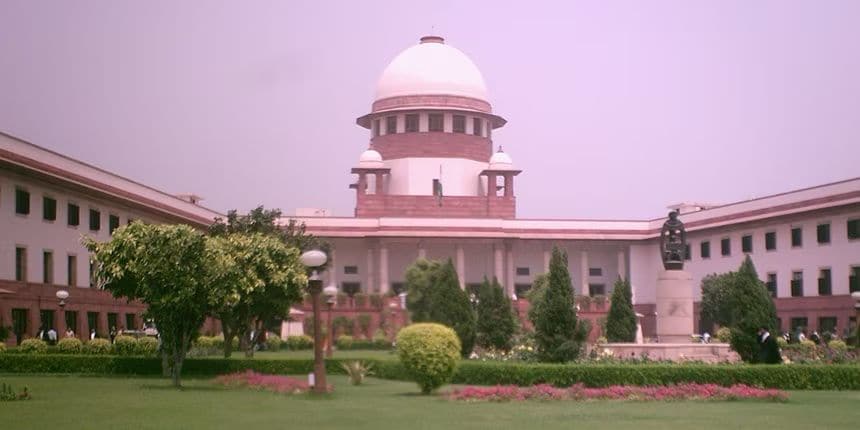AMU Minority Status Hearing: AMU to remain minority institution, Supreme Court overrules 1967 judgment
Ayushi Bisht | November 8, 2024 | 12:09 PM IST | 1 min read
AMU Minority Status: The Supreme Court in a 4:3 majority ruling has overturned the 1967 Azeez Basha verdict on AMU's minority status under Article 30.

NEW DELHI: In the case relating to the minority status of Aligarh Muslim University (AMU), a Supreme Court bench overruled the 1967 judgment in S Azeez Basha vs Union Of India which held that an institution incorporated by a statute cannot claim to be a minority institution. This decision came from a seven-judge bench of the Supreme Court which delivered its verdict by a 4:3 majority.
The 1967 judgment in S Azeez Basha had been the cornerstone of the legal interpretation regarding the status of institutions like Aligarh Muslim University (AMU), which were established by statutes, but also had claims to minority status due to their historical association with a particular community — in AMU's case, the Muslim community.
According to the 1967 ruling, the court had concluded that statutory institutions, like AMU, could not be classified as minority institutions under Indian law, which created a legal precedent barring such claims.
AMU Minority Status: Four separate judgements
The Seven-judge constitution bench of the Supreme Court on Friday delivered four separate judgements in the Aligarh Muslim University minority status case. Chief Justice D Y Chandrachud, who headed the bench, said there were four separate opinions, including three dissenting verdicts. The CJI said he has written the majority verdict for himself and Justices Sanjiv Khanna, JB Pardiwala, Manoj Misra.
"One thing which is worrying us is that the 1981 amendment does not restore the position as it stood prior to 1951. In other words, the 1981 amendment does a half-hearted job," Justice Chandrachud had said while proceeding to close the arguments.
“I can understand if the 1981 amendment had said... okay, we are going back to the original 1920 statute, confer complete minority character on this (institution),” the CJI had said.
Justice Chandrachud said Justices Surya Kant, Dipankar Datta and Satish Chandra Sharma have penned their separate dissenting verdicts.
Follow us for the latest education news on colleges and universities, admission, courses, exams, research, education policies, study abroad and more..
To get in touch, write to us at news@careers360.com.